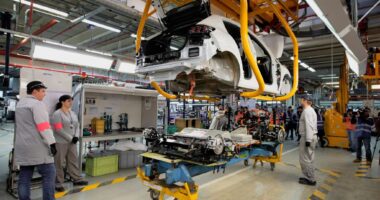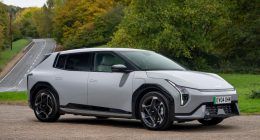Last month was the weakest for new cars sales in the UK for two decades, with the same issues continuing to affect the supply and demand of the latest models from all of the leading manufacturers.
Figures published by the Society of Motor Manufacturers and Traders (SMMT) show registrations dropped by almost 21% to 124,394 units – the poorest performing May stretching back to 1992.
UK-wide, the Vauxhall Corsa was the best performing nameplate as 4,399 examples were shifted followed by Ford’s Puma Crossover (3,580) and the company’s recently facelifted Fiesta supermini (3,379).
That consolidated the Corsa’s position at the top of the standings as 17,198 have been sold since the start of January. The Puma is second (15,426) and Nissan’s family-friendly Qashqai SUV third on 13,596.
As for Northern Ireland, 3,328 deals were agreed by local dealerships across May – a 14.2% reduction on the same period last year – although total numbers between January and May were up-year-on-year by 4.93% to 17,600.
Pure electric vehicles continue to increase their market share, meanwhile, with battery-powered car sales rising by 17.7% – the equivalent of one in eight new cars joining the UK’s roads last month. Plug-in hybrids declined 25.5%, though, while hybrids were up 12% meaning altogether, deliveries of electrified vehicles accounted for three in 10 models leaving showrooms.
Mike Hawes – the Chief Executive of the SMMT –said: “In yet another challenging month for the new car market, the industry continues to battle ongoing global parts shortages, with growing battery electric vehicle uptake one of the few bright spots.
“To continue this momentum and drive a robust mass market for these vehicles, we need to ensure every buyer has the confidence to go electric. This requires an acceleration in the rollout of accessible charging infrastructure to match the increasing number of plug-in vehicles, as well as incentives for the purchase of new, cleaner and greener cars.
“Delivering on Net Zero means renewing the vehicles on our roads at pace but, with rising inflation and a squeeze on household incomes, this will be increasingly difficult unless businesses and private buyers have the confidence and encouragement to do so,” he added.









